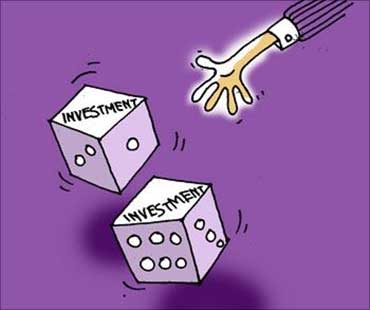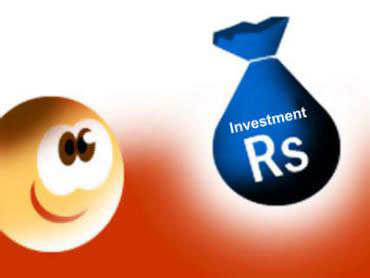
All of us need life insurance; it's one of the priority investments to make. Life insurance protects the income generator, and only when income generation is secured can one build wealth.
But don't make the cardinal mistake that, alas, millions of investors commit - confusing life insurance with wealth-building investment.
Keep the two separate. Buy the maximum insurance that you need at the cheapest rates by selecting only term policies. By doing so, you will save big on premium; now add the premium money saved to your wealth-building investment pool.
This way you achieve a double benefit - you can get a higher insurance cover - and have money left over to invest profitably.
Click NEXT to find out why a top investment expert says so . . .

I have often pointed out and will do so once more - I am not in favour of any life insurance plan of any insurance company, other than term insurance plan.
All other plans, including Endowment, Whole Life ULIP and all others combine insurance and investment. Such a blend, without exception, is sub-optimal. It is always better to keep insurance and investments separate.
On the other hand, a term insurance plan has no cash payout at the end of the term. This means if the policy holder were to pass away during the term of the policy, his family will get the sum assured.
. . .

If this is indeed the case, why do I favour term insurance as against a traditional endowment or whole life policy which, at least pays, at the end of the day, no matter what, either the sum assured or the maturity value? Let us see.
Basically insurance is a cost. It is a contract in which you purchase financial protection or reimbursement against a loss or an unanticipated expense. The price paid to purchase such protection is called premium in insurance parlance. This premium is payable, year in year out, till you desire protection from the loss.
. . .

And you are perfectly happy to have done so, so long as you and your car are safe. Or take medical insurance. Again, premium is paid to defray any costs of medical emergencies or hospitalisation.
However, if you remain fit and fine the premium paid on the medical insurance is lost. But then again, you do not mind this, do you?
. . .

The reason for this is mainly because life insurance premiums come bundled with the pure premium part combined with the part that gets invested on your behalf.
The policy is sold more as an investment avenue where the insurance just comes along. However, know that insurance never comes along for free, it always has to be paid for. In the case of life insurance, the premium is known as mortality premium.
This mortality premium is applicable for all polices, year after year, without any exception, till such time that the life is insured. Even in the case of single premium plans, or policies where the premium is payable only for part of the policy term, the mortality premium keeps getting deducted every year from the fund value. Thus, insurance never just comes along for free, you actually buy it year after year.
. . .

However, a term plan would just cost Rs 3,800 per annum for the same amount of risk cover of Rs 10 lakh. In other words, should the insured person expire prematurely, his legatees will get Rs 10 lakh if he was covered by an Endowment or a Term policy. Endowment premium is Rs 39,000 and that of term is Rs 3,800.
. . .

Of course and understandably the agents earn a far greater commission if they sell you polices other than term cover.
And the logical sounding argument given against buying a term cover is - why opt for it when you do not get anything back in the end? But now hopefully you know better.
And before I end, I do actually have a favourite policy. It is called 'Buy term and invest the difference'.
(Excerpt from Taxpayer to Taxsaver (FY 2010-2011) by A. N. Shanbhag. Published by Vision Books.)